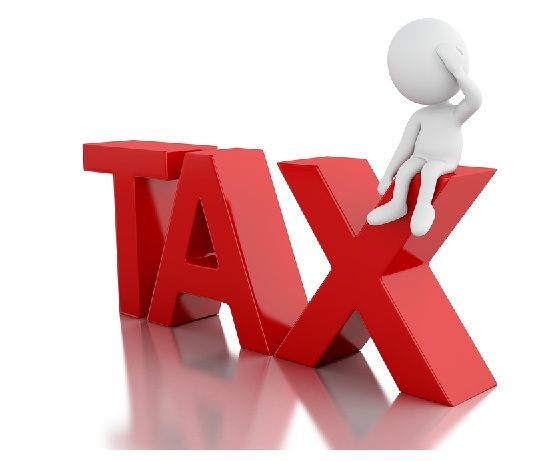As an employee working for some organisations in Nigeria, you get to enjoy perks and benefits in addition to your salary and allowances. These additional benefits are known as Benefits in Kind, and they are considered taxable according to the Personal Income Tax Act (as amended). In light of this, it’s pertinent to know how to calculate Benefit in Kind whenever you compute your Pay-As-You-Earn returns for PIT. Read on to get the information on how to calculate Benefit in Kind in tax in Nigeria.

How to calculate Benefit in Kind in tax in Nigeria would be discussed below:
-
What Does Benefit in Kind Mean?
Benefit in Kind (BIK) is a term that refers to the expenses outside salaries or allowances incurred by an employer of labour for the benefit of its employees. Organisations that offer their employees these additional perks and benefits do this to keep their employees from being snatched by competitors as well as to attract top talents in their respective industries. Some examples of BIKs include the provision of assets (such as cars and household equipment), accommodation, utilities, and paid vacation, among others.
In Nigeria, BIKs are considered chargeable income and part of employees’ gross emoluments under the Personal Income Tax (Amendment) Act 2011 (PITA). Chargeable income is defined in Section 3(1)(b) of PITA as “any salary, wage, fee, allowance, or other gain or profit from employment, including compensations, bonuses, or other perquisites allowed, given, or granted by any person to any temporary or permanent employee…”.
Section 33(2) goes on to corroborate BIKs as being taxable income. It defines gross emolument to be “wages, salaries, allowances (including Benefits in Kind), gratuities, superannuation and other income derived solely by reason of employment”. Based on the provisions of the excerpts of the Personal Income Tax Act we quoted above, any Benefit in Kind being provided by an employer to his colleague(s) is subject to PIT.
However, certain BIKs are exempted. These include:
- Reasonable removable expenses, including a temporary substance allowance where a change in place of employment necessitates a change in place of residence
- Provision of food in any canteen for staff generally
- Provision of uniforms, overall, or protective clothing
Aside from the Benefits in Kind exempted from being subject to Personal Income Tax, expenses incurred whenever an employer provides assets, accommodation, or hires or rents assets for their employees’ benefit are taxable. It is important to note that employees are taxed for the BIKs they receive from their employers. “How then are these BIKs valued for tax purposes?” is the question that is probably going through your mind. Read on to find out.
-
How to Calculate Benefit in Kind in Tax In Nigeria
Benefits in Kind are considered as a chargeable income and part of gross employment, making them subject to Personal Income Tax. That’s why you need to learn how to calculate the Benefits in Kind received from your employer. We would start with how to calculate Benefit in Kind in tax for assets provided by an employer to an employee, then how to calculate Benefit in Kind in tax for situations where the employer provides accommodation for the employee. Lastly, we would discuss how to calculate Benefit in Kind in tax when an employer rents or hires assets for use by employees.
As promised in the trailing paragraph, let’s discuss how to calculate Benefit in Kind in tax where an employer provides assets for use by employees. Employees in Nigeria who enjoy assets provided by their employers as part of the Benefit in Kind packages offered by the organisation are taxed at 5% of the cost of the asset. If the cost of assets cannot be ascertained, 5% of the market value of the asset. For example, the taxable benefit of an employee who was provided an asset by his employer worth N300,000 is N15,000.
In the event whereby an asset provided for an employee by his employer is used for private and official usage, the calculation to obtain the taxable BIK is based on the ratio of the usage. However, apportioning value to assets that serve dual purposes is largely subjective and left to the relevant tax authorities to excise their discretion.
Next, let’s discuss how to calculate the taxable benefit to an employee if his employer provides him with accommodation. In this case, the employee is charged with the cost of the annual value of the premises of his employer’s accommodation. The value of the premises occupied by the employee is supposed to be determined by the official local rates from the government. Sadly, there is a lack of official rates from the government to determine the value of the premises occupied by the employee.
The other option to determine the annual value of the employer’s premises occupied by an employee is for the relevant tax authority to use its discretion in the valuation of benefits. This option leaves the taxpayer (i.e. employee) at the mercy of the tax authority to determine the annual value of the premises provided by the employer.
Lastly, when an employer rents or hires assets for use by an employee; the employee is treated as receiving the amount paid to the landlord or hirer. In other words, the amount of Benefit in Kind in the hands of the employee equals the annual rent or hire paid for the asset by the employer. So, if an employer spends N150,000 to rent equipment for his employee for a year; such an employee has a taxable BIK of N150,000 for the year in which the equipment was used.